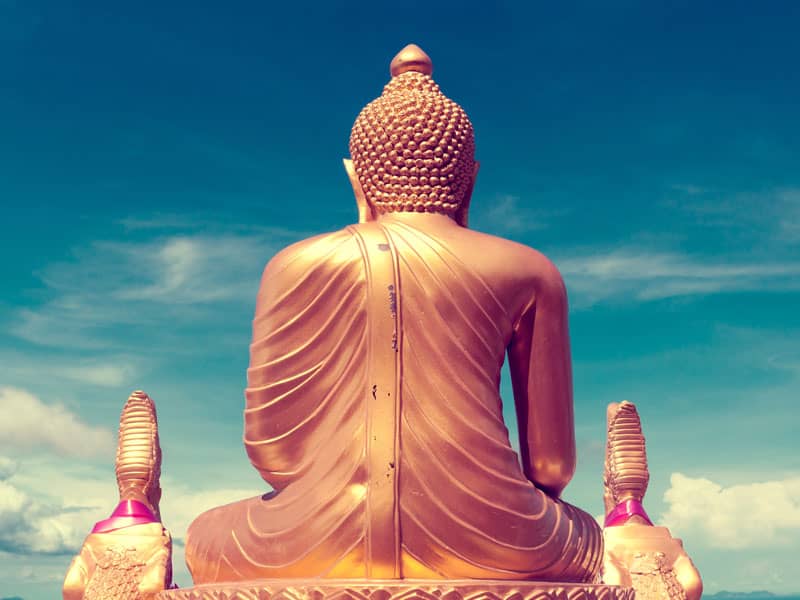Vice President of Tibet House and composer Philip Glass introduced the night's eclectic program by welcoming six saffron-robed monks from the Drepung Gomang Buddhist Monastic University in southern India. Their opening invocation consisted of long-horn playing and chanting in prayer for the peace and prosperity of all sentient beings. They set a contemplative stage for the gala fundraising event, which was imbued with an interconnectedness that is at the heart of Tibetan Buddhism.
The diversity of international performers demonstrated this concept best as they all shared the stage throughout the night. The mournful lyricism of Mark Anthony Thompson, whose R&B version of "Soul Love" was written by the benefit's headliner David Bowie, was tempered by the bossa nova of Brazilian singer Bebel Gilberto. Her breezy hip-swaying and a playful percussive groove were both soulful and lulling. When The Kinks frontman Ray Davies came out to join her on her guitar, however, the reverie was transformed. He wasted no time erupting with the Kinks classic "All Day and all of Night," lifting the audience onto its feet, briefly turning the hall into a punk-rock venue.
It was a spirited night of music, full of hymn-like ballads and highly charged anthems. The songs conveyed a gamut of emotions from loss to triumph, and it seemed that the specter of September 11 kept vigil during some of the more subdued performances. After the Tibetan flutist Nawang Kechong played a eerily wispy solo following a duet with Philip Glass, he offered a prayer-chant in English: "May Tibet be free and so know peace. May we all be kind to each other."
Then, as if to emphasize the simplest of Buddhist principals, he repeated the second line, slowly and distinctly, "May we all be kind to each other." Given the current climate of aggression and intolerance in the world, it was a poignant reminder of the fundamental lesson of compassion, especially at a time when nonviolent sentiments are less and less in vogue.
This wish for peace was echoed by other artists as well. Beastie Boy Adam Yauch, who is the co-founder of The Milarepa Fund, a not-for-profit focusing on Tibet's commitment to social change through nonviolent means, spoke about the importance of "the Tibetan issue in a time of gung-ho warmongering." He stressed how "Tibet's struggle for independence should serve as an example" to governments seeking to end the cycle of violence. And on the subject of evil in the world, President of Tibet House Robert Thurman described how ugliness and confusion can only be conquered through art and song."Evil comes from within," he said, stating that it's up to us to ensure that it is "wiped out with love.using the shield of life" that is art.
Smith's demand for justice and equality roused the hall once the entire ensemble joined her for the benefit's annual finale "People Have the Power." People rushed to dance at the foot of the stage in solidarity and celebration, and as the lights came up and people began filtering out into the aisles, she challenged them: "Use your voice! Use your art! Remember who you were on September 10!" It was an impassioned call to action to not lose sight of human rights violations in Tibet and elsewhere in the world.
Though the various artists came and went during the two-and-a-half hour concert--exchanging hugs and mingling their voices with the resonant chants of the Tibetan monks--the one presence that remained throughout was the Potala Palace. A colorful depiction of the Dalai Lama's former Lhasa residence hung from the ceiling as a 40-foot-long illustrated banner. It was a consistent symbol of Tibetan culture and a hopeful message that conflict may yet be resolved through nonviolence, for Tibet, for the world.

